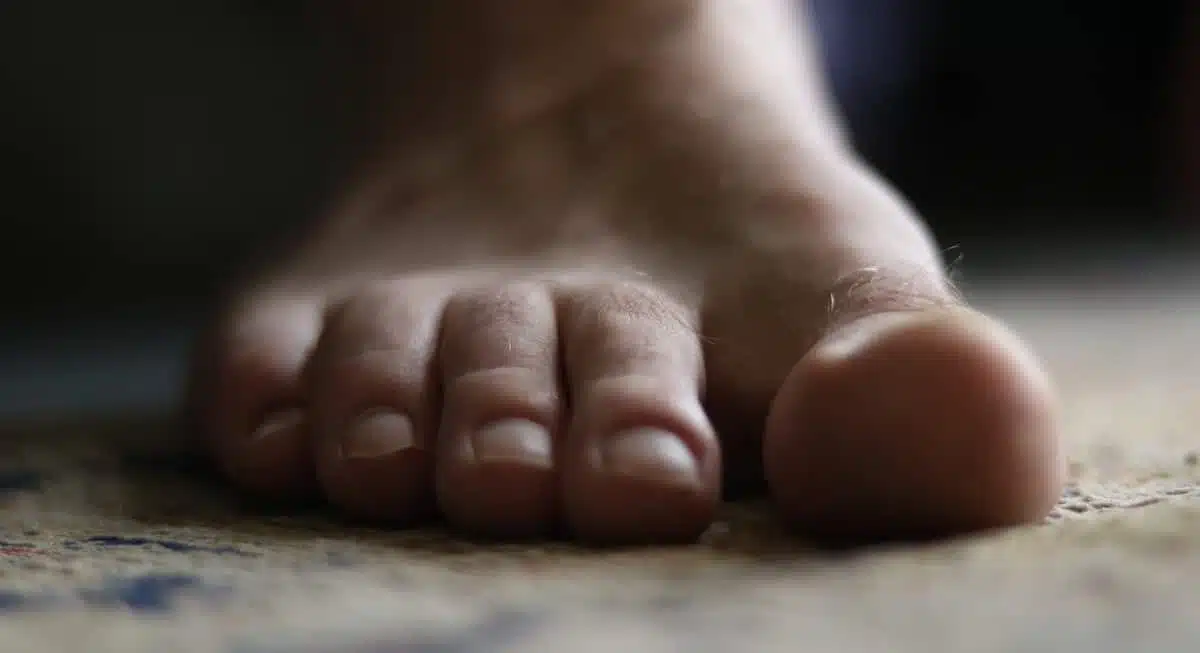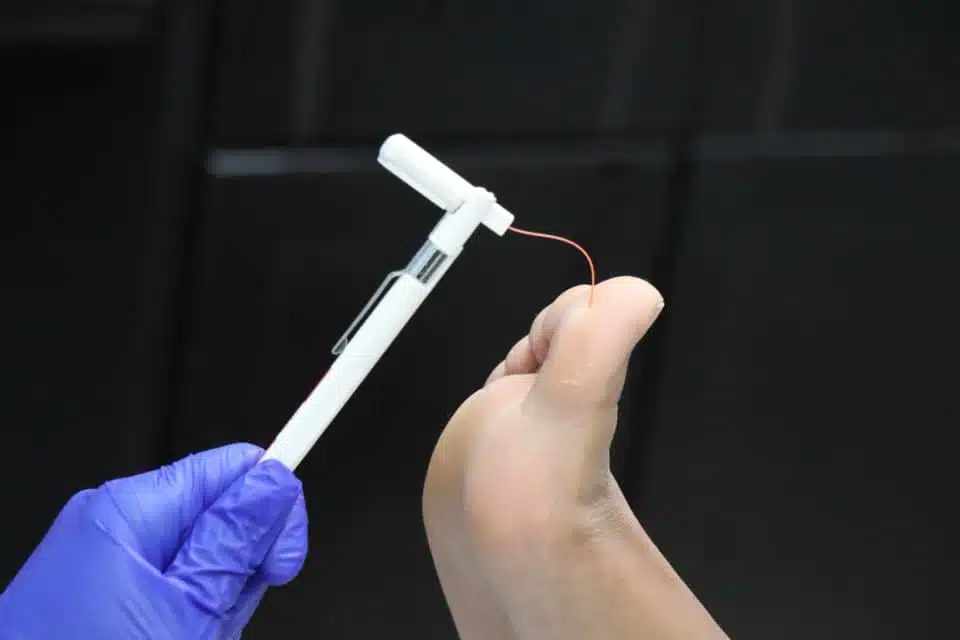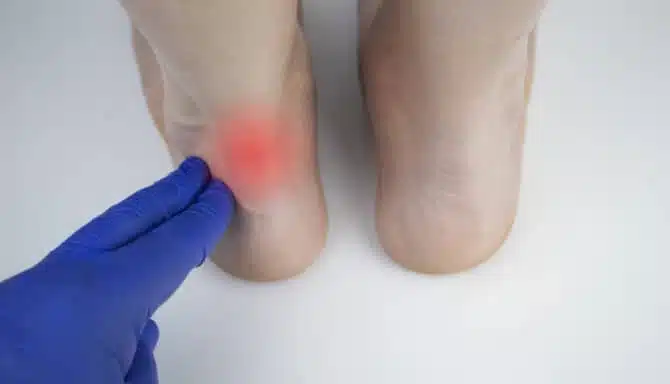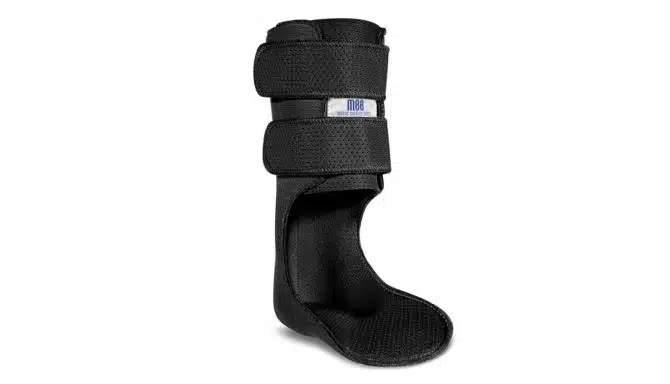Have you ever experienced that uncomfortable sensation of numbness in your toes? It’s a temporary disconnect between your brain and lower extremities and may leave you wondering, “What’s going on?”
Numb toes range from a minor problem to a potentially severe issue, and understanding the reasons behind this unique sensation is the first step toward finding relief.
So, if you’ve ever wondered why your toes sometimes go on strike, keep reading to learn more about the leading causes of numb toes and when to seek medical attention.
Numb toes: The most common causes

There are several causes of numb toes. Below, you’ll find some of the top contributors and their signs.
Poor Circulation
Reduced blood flow to the toes can lead to numbness. This can occur due to sitting or standing in one position for too long, wearing tight shoes, or sitting with your legs crossed. In these cases, the numbness is usually temporary and goes away once you change your position or remove any constricting clothing or footwear.
Peripheral Neuropathy

Peripheral neuropathy involves damage to the peripheral nerves, often due to diabetes, alcohol abuse, vitamin deficiencies, or other underlying medical conditions. Symptoms can include numbness, tingling, and pain in the toes and feet.
Nerve Compression
Conditions like sciatica or a herniated disc in the lower back can compress the nerves that supply sensation to the legs and feet, causing numbness and tingling in the toes.
Frostbite or Frostnip
Frostbite is an injury caused by freezing the skin and underlying tissues. Your skin becomes cold and red, then numb, followed by hardening and paleness. Depending on the severity, you may experience frostnip (the early onset of frostbite or superficial frost bite) or deep frostbite, which involves more severe stages of nerve damage.
Tarsal Tunnel Syndrome
Like carpal tunnel syndrome in the wrist, tarsal tunnel syndrome involves compression of the tibial nerve in the ankle, leading to numbness and tingling in the toes. The tarsal tunnel is a narrow space inside the ankle next to the ankle bones, through which the tibial nerve runs. A thick ligament covers the tunnel and helps contain its inner workings – veins, arteries, tendons, and nerves. Tarsal tunnel syndrome is the most common kind of nerve compression in the ankle. Underlying causes of tarsal tunnel syndrome include direct trauma to the tarsal tunnel, flat feet, fallen arches, growths in the tarsal tunnel, and varicose veins.
Morton’s Neuroma
Another type of nerve compression, Morton’s neuroma, may lead to numbness in your toes. The most common site is at the ball of the foot between the third and fourth toes. As this nerve is thicker than its surroundings, it’s at a greater risk of being blocked, which can cause numbness in the toes. You may feel a numbing sensation or like you have a pebble in your shoe.
Raynaud’s Disease
Raynaud’s causes blood vessels in the fingers and toes to constrict excessively in response to cold temperatures or stress. This can lead to numbness and discoloration of the affected digits.
Injuries
Trauma to the foot or toes, such as fractures or compression injuries, can cause temporary numbness. For instance, ankle or Achilles heel injuries can directly or indirectly impact the tarsal tunnel region.
Infections or Abcesses
Toe or foot infections can lead to numbness, mainly if they spread to the nerves.
Circulatory Disorders
Conditions like atherosclerosis or blood clot formation can reduce blood flow to the toes, causing numbness.
Tight Footwear
Shoes that are too narrow in width or too small in length can compress your toes and reduce blood circulation. Ensure you are correctly fitted with the right pair of footwear to allow enough space for your toes to move. You can even do a shoe sizing and fitting session here at Feet First Clinic, choosing from leading footwear.
When should you seek medical help for numb toes?

We recommend that you seek help for numb toes if any of the following apply:
- The numbness in your toes is persistent, recurring, or unexplained.
- You have diabetes – Numbness in the feet can be a sign of diabetic neuropathy, which requires proper management.
- You experience numbness, weakness, coordination loss, or other neurological symptoms.
- There is a sudden onset of numbness, especially after an injury or in combination with other concerning symptoms.
It’s crucial to remember that numbness in the toes can be a symptom of various underlying conditions. An accurate diagnosis from a healthcare provider can be helpful when treating and ruling out any serious underlying issues.












